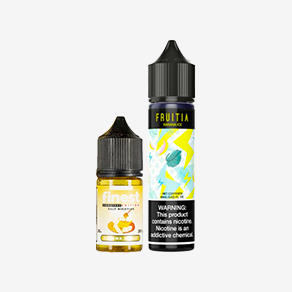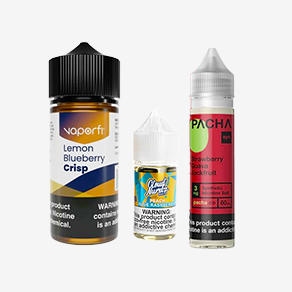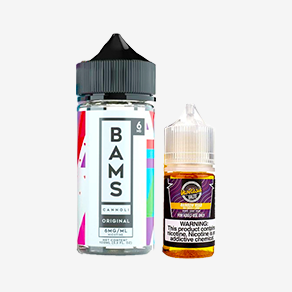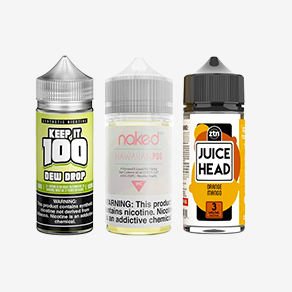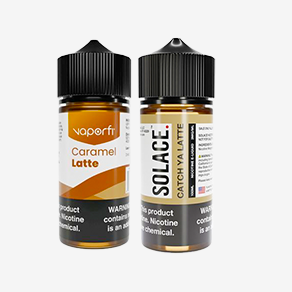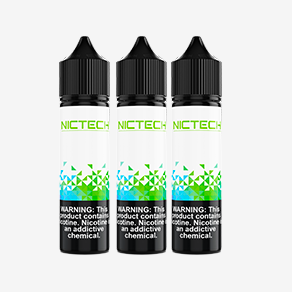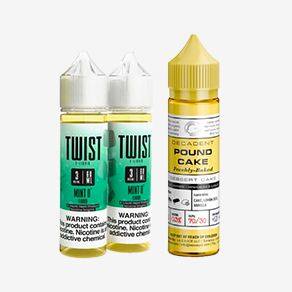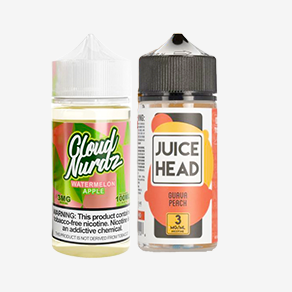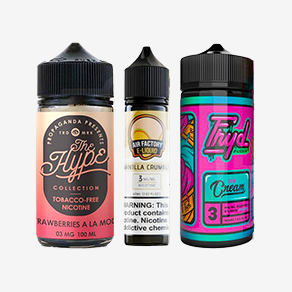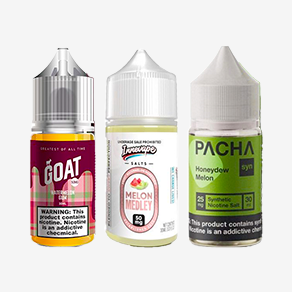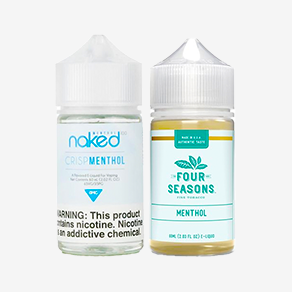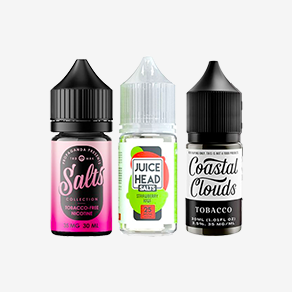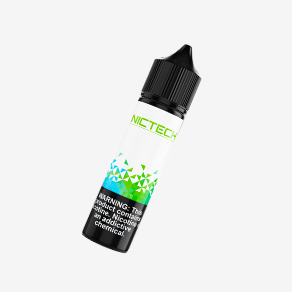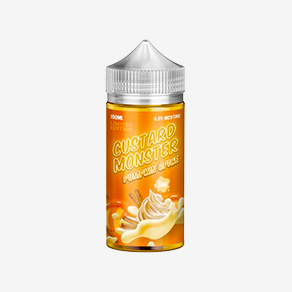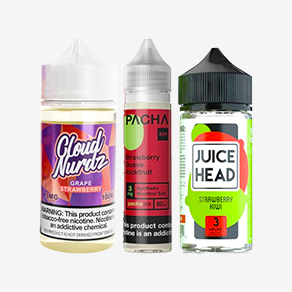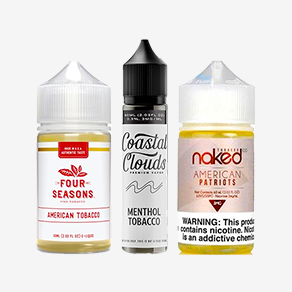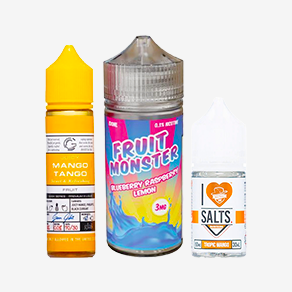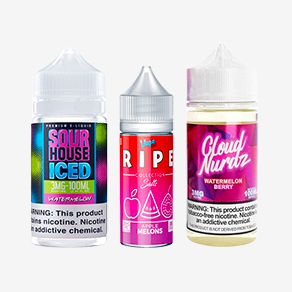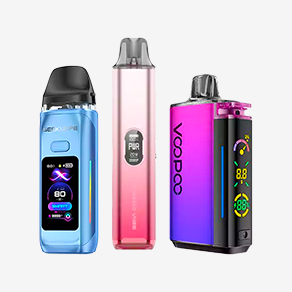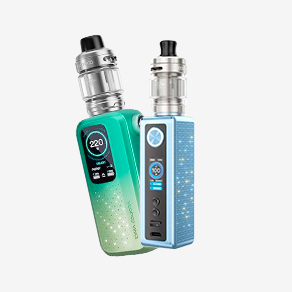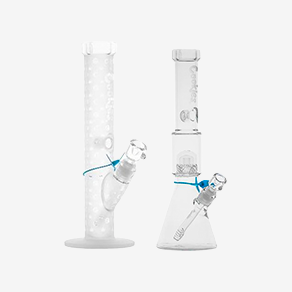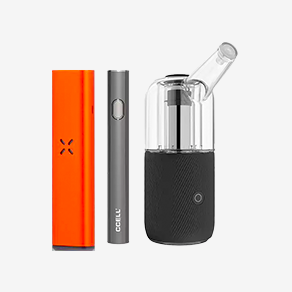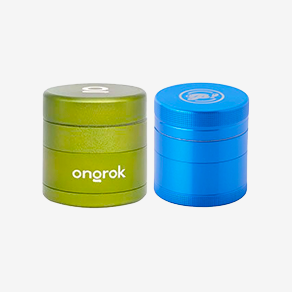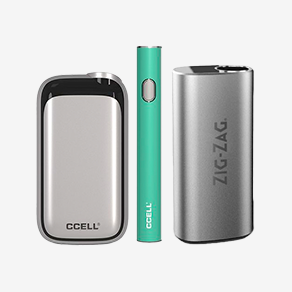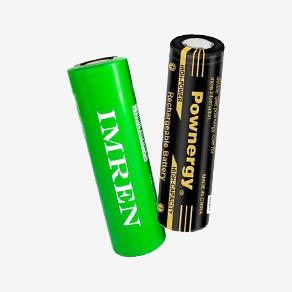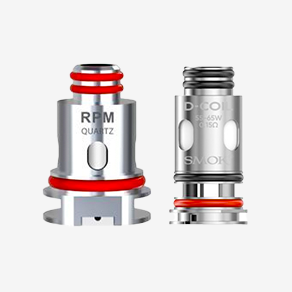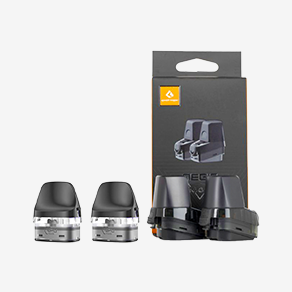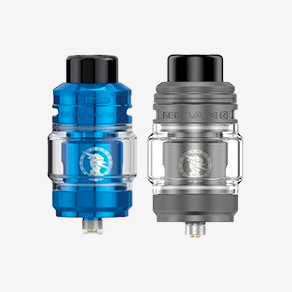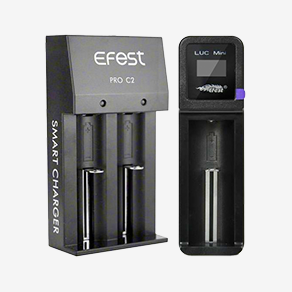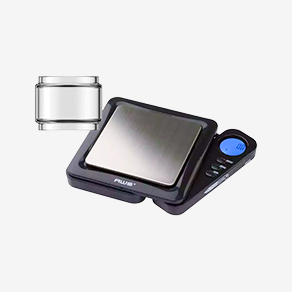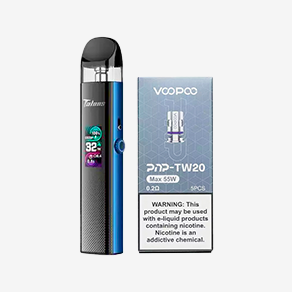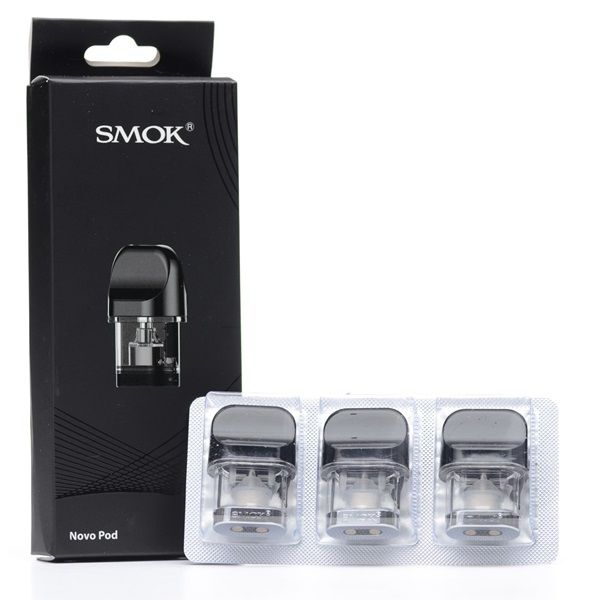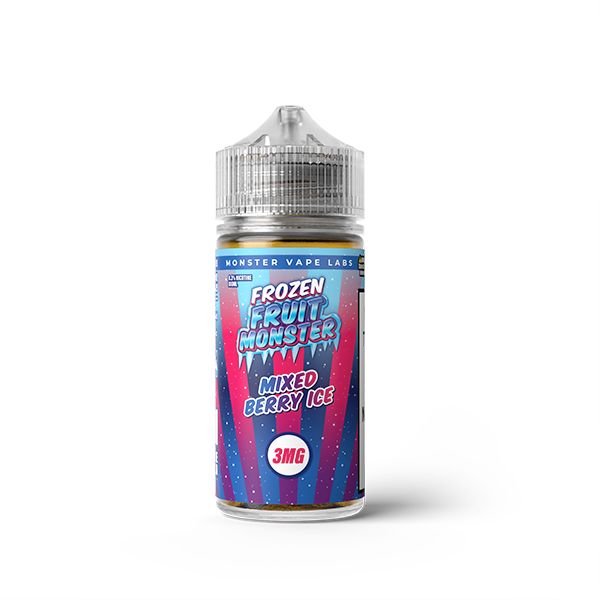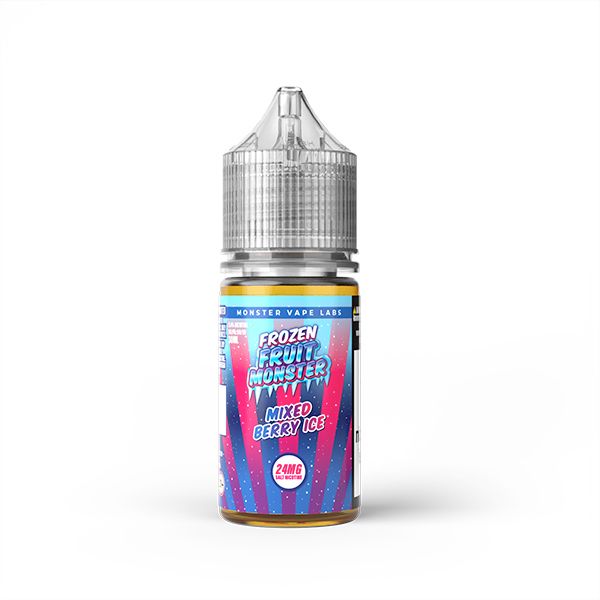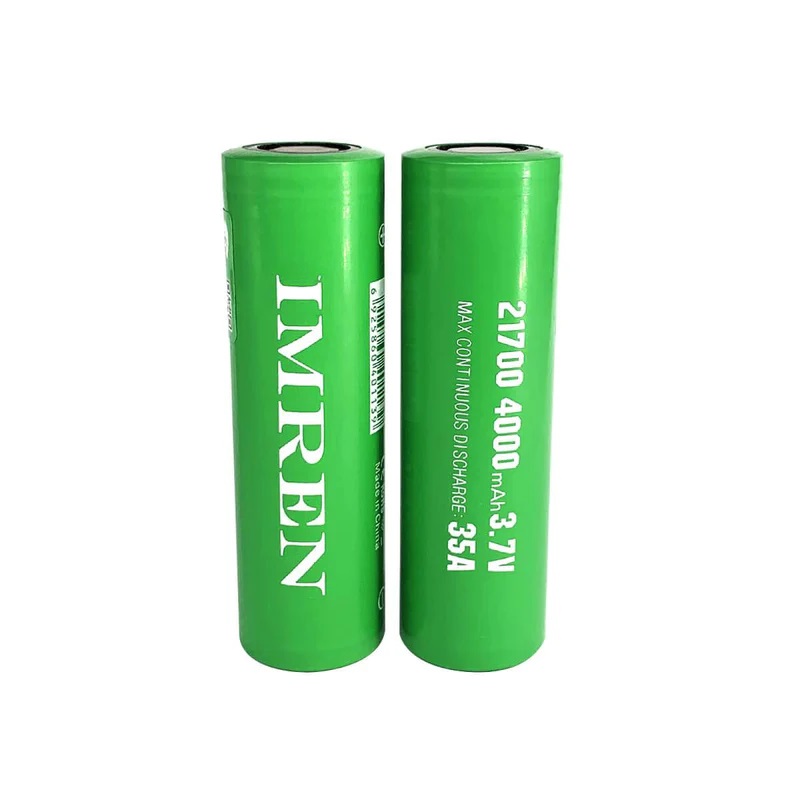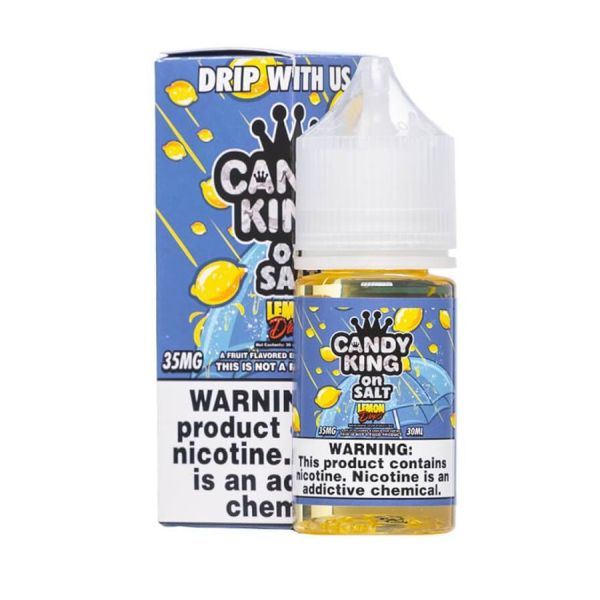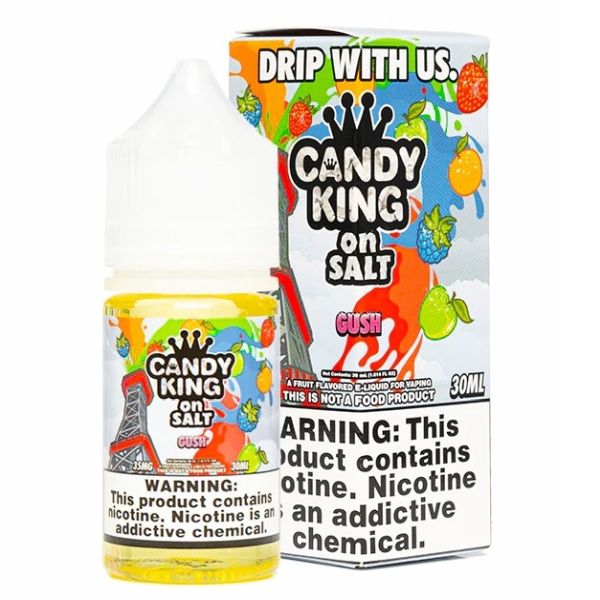-
A
A Beginner’s Guide on How to Use Vape Pods A Beginner's Guide to Sub-ohm Vaping A Mini Vape Shopping Guide for 2019 A Parent’s Guide to Vaping: How to Talk to Your Teen About E-Cigarettes A Powerful New Era: the VaporFi Volt 2 Tank is Here! Advanced Personal Vaporizer (APV) All Treats and No Tricks for Our Deal of the Week! American Spirit Alternatives An Update on Vape Tax Increase in New York Announcing Very Berry Slushie Are Dry Herb Vaporizers Worth It? Are Vapes Gluten Free? Aspire Breeze 2 All-In-One Vape Starter Kit Review Aspire Cobble AIO Vape Pod Starter Kit Product Review At What Temperature Does THC Vaporize And Evaporate At? August Juice & Blend of the Month and Our EJuice Contest Winner! Australia Nicotine Ban & Vaporizers
-
B
Beginner’s Guide to Sub-Ohm Vaping Beginners Guide to Vaping - Where to Start Benefits & Best of HHC Benefits of Delta 8 Benefits of Delta 10 Benefits of Using a Pod System Best Advanced Vape Guide Best All-In-One Vape Devices for 2024 Best Apple Vape Juice Best Banana Vape Juice 2024 Best CBD E-Liquids & Oils Guide Best Cereal Vape Juice Best Coffee Flavored Vape Juice of 2024 Best Dab Pen Deals Best Dab, Wax, or Concentrate Pens of 2024 Best Delta 8 Brands Best Delta 8 Carts Best Delta 8 Disposables Best Delta 8 Edibles Best Delta 8 Gummies Best Delta 8 Products for Sleep Best Delta 10 Products Best Dessert Vape Juice Best Disposable Vapes 2025 Best Drip Tips for Your Vape: 2019 Edition Best Electronic Cigarettes 2024 Best Fruit Vape Juice 2023 Best Grape Flavored Vape Juice 2024 Best Large Vapes Best Mouth-to-Lung Tanks for 2019 Best No Nicotine Vape Juice Best Pod Mod & Vape Pod Systems Best Products for a Great Throat Hit Best RDAs [Rebuildable Dripping Atomizers] for 2019 Best RDTAs for Flavor of 2019 Best Refillable Vape Cartridges Best RTA Vape of 2019 Best Salt Nic Juice Brands of 2024 Best Salt Nic Vapes of 2024 Best Small & Compact Vapes to Fit in Your Purse Best Squonk Mods for 2024 Best Strawberry Vape Juice 2024 Best Sub-Ohm Vape Tanks for 2024 Best Sub-Ohm Vape Tanks for Fall 2020 Best Sweet Vape Juice Flavors 2024 Best Tobacco Nic Salts Best Vape Kit for Beginners: Deal of the Week Best Vape Mods Best Vape Mods for Clouds Best Vape Pens for 2024: Vaporizer Pens You Need To Try Best Vape Pod Systems Best Vape-Friendly Cities Best Vapes of 2024 Black Friday Cyber Monday Vape Deals Blagoy Ivanov Fights for Your Right to Vape!
-
C
Camel Alternatives Can You Bring a Vape to a Concert / Music Festival? Can You Smoke / Vape on the Beach in California? CAN YOU TAKE VAPES ON A PLANE? TRAVELING WITH E-CIGARETTES Catch Our Deal Of the Week: Catch Ya Latte! CBD Vape Effects: How Does CBD Vape Make You Feel? Cheyden Leialoha: Repping the Vape Fam at VFC 52! Choosing the Right Material for Your Hand Pipe Choosing the Right Vape Pen Cartridge Cigar Vapes & Flavors Cigarette Types & Brands Clasing Clouds: Competition Vaping Coachella Vaping & Marijuana Event Cole Bishop Amendment Status Could Marine Le Pen be the First Vaping President?
-
D
Dab Pen vs Cart: Ease of Cart Batteries Dab Pens vs Dab Rigs: Which is Right for You? Dating & Vaping: Up Your Sex Appeal Deal of the Week Coming at Ya! Deal of the Week Times 2: Menthol Ice & Blueberry Cheesecake Deal of the Week: Calling all Coffee Vape Lovers! Deal of the Week: Get It on the Go With the VAIO GO Bundle Deal of the Week: Get the Tesla Punk 220W TC Vape Mod! Deal of the Week: Get the VaporFi Pro 3 for Just $35.99 Deal of the Week: Keep it Cool All Summer Long with Slushie! Deal of the Week: Mini-Sized Awesomeness with the iCare Mini! Deal of the Week: Rebel 3 Starter Kit is HOT! Deal of the Week: TFV8 Cloud Beast Tank Deal of the Week: The Grand Reserve Tour de Force! Deal of the Week: The ONE You Need - SMOK Micro One Starter Kit Deal of the Week: The SX Mini G Class is HOT!!! Deal of the Week: The Uwell Valyrian Sub-Ohm Tank is Just $33.99! Deals of the Week: Havana Beach & the Rocket 3! Delta 8 & Working Out Delta 8, Dieting, & Metabolism Discover the Best Ice Flavor Vape Juices Disposable Vapes vs. Vape Pod Systems Do Dry Herb Vaporizers Smell? DOW: Experience the Power of the SMOK GX350 Starter Kit! DOW: Get the Envii FITT Ultra Portable Pod Starter Kit Bundle DOW: Get the SMOK Alien Starter Kit! DOW: Soar with the Rocket 3 Starter Kit DOW: Take Your Vaping Higher with the Rocket 3 Starter Kit! DOW: The Druga Dripper RDA Bundle DOW: The Rocket 3 Starter Kit Bundle DOW: Vox 40 or Vox 80? Take Your Pick! Dry Herb Vapes vs. Oil Vapes Dry Herb Vaping: Revolutionizing How It’s Done
-
E
E-Cigs & Vaping Illegal Synthetic Drugs Early Support for Vaping Rights Continues as Reps in More Than 19 States Co-Sponsor Bill Eduardo “Dudu” Dantas & VaporFi Fight For Your Right to Vape at Bellator 156! Elevate Your Herbs with the Orbit Everyday Vape & E-Liquid FAQ Everything You Ever Wanted to Know About Dry Herb Vaporizers Everything You Need to Know About Vaporesso Gen S
-
F
FAQ About Vaping & Nicotine FDA Collects Vape Battery Explosion Statistics FDA Vaping Lawsuit News FDA Vaping News: E-Cigarette Regulations on Hold FDA Wants to Treat Vape as a Tobacco Product Fighting for the Vape Fam: Maki "Coconut Bombz" Pitolo Find It to Win It: 90ml of Vape Juice Find the Right Temperature For Your Dry Herb Vaporizer Finding the Best Nic Free Vape Fit CBD Into YOUR Day in YOUR Way! Flavor for Days With Our Deal of the Week! FreeMax Marvos S 80W Kit Review
-
G
GeekVape Aegis Legend 2 Starter Kit Review Get in the VaporFi Express Lane with Our DOW! Get Ready for Launch: The Air 2 is Here! Get Ready for Team VaporFi at Bellator 206! Get Ready to Get Into Orbit! Gotta Vape ‘Em All: Find the Nearest Pokémon Go Hotspot at these VaporFi Franchises Guide To Being A Dual Vape User Guide to Cannabis Concentrates Guide to Dabbing Tools & Accessories Guide to Different Rechargeable Vapes Guide to Setting Up a Party Vape Bar Guide to Types of Dabbing Pipes Guide to Vape Pen Battery Light Colors
-
H
Heated Tobacco Guide Hello, July! Great Deals and Delicious Vape Juice Ahead! High-End Vape Mods: More Than Just Fancy Gadgets Holiday Blends Holiday Gifts for the Vapers in Your Life Horizon Tech Falcon Tanks & Coils - Guide How A Vaporizer May Improve Your Lifestyle How Does CBD Work? How Does Dry Herb Vaping Work and What is the Experience Like? How is Nicotine Salt Made and How is It Different? How Long Does A Disposable Vape Last? How Long Does It Take to Fully Charge A Vape Pen? How Long Does it Take to Recharge an 18650 Battery? How Long Does Nicotine Stay in Your System How Old Do You Have to Be To Vape? How to Calculate Vape Amps How to Choose Between Salt Nic and Freebase Vape Juice How to Choose the Best Mig Vapor Device for You How to Choose the Best Vape Starter Kit 2024 How to Choose the Perfect Vape Holiday Gift How to Choose the Right Vape Cartridge for Your Device How to Choose the Right Vape Juice for Your Device How to Clean a Vape Coil How to Convince My Partner to Stop Smoking How to Dab: Dabbing Dos and Don’ts How to Fix a Stuck Vape Tank: Tips and Tricks How to Fix a Vape Mod That's Not Firing How to Fix Leaky or Flooded Vape Tanks How to Identify a Fake Cart How to Make E-Liquid Last Longer HOW TO MAKE YOUR COILS LAST LONGER How to Pick Your Next Vape MOD How to Pick Your Next Vape Tank or RDA How to Prevent Dry Vape Hits and Improve Your Vaping Experience How to Prime a Vape Coil How to Properly Use Refillable Vape Cartridges How to Rebuild & Upgrade a Vape How to Stealth Vape Like a Boss How to Steep E-Liquid How to Step Down Your E-Liquid's Nicotine Level How to Switch Vape Juice Flavors How to Use a Dab Pen & Maintain It How To Use and Turn On a SMOK Vape How to Wick a Coil The Right Way How UK Vapers Are Replacing Cigarettes With Vaping
-
I
Ian Lujan and Team VaporFi Fight For Your Right to Vape! Innokin Z80 Coolfire Zenith II Starter Kit Review Introducing the Astral Project Introducing the Atom Dry Herb Vaporizer! Introducing The VEX Collection of Vape MODs Is Delta-8 Good for Anxiety? Is Eleaf a Good Brand? Is SMOK a Good Brand? Is SMOK Made in China? Is the SMOK Nord 2 Worth Upgrading to?
-
J
Jake “The Librarian” Lindsey is Fighting for Your Right to Vape at VFC 50! Joshua ‘Cuddly Bear” Copeland Fights For Your Right to Vape at WSOF 31! JOSHUA DEAN “The Juggernaut” APPELT Reps VaporFi at Bellator 154! Joyetech eGo AIO Starter Kit Review: The Ideal All-In-One Kit Joyetech eGo AIO vs SMOK Pen 22: Best Portable Vape Joyetech eGo AIO vs SMOK Stick V8: Showdown of the Vape Pen Kits (Infographic) Just Like Momma Told You: The How and Why of a Clean Vaporizer
- K
- L
-
M
Making the Best MTL Vape Making the Best Vape for DTL Vaping Marlboro Alternatives Meet the New VaporFi VOX 50 Mod Starter Kit Meet the New VaporFi VOX TC Mods Meet the Pro 3 Starter Kit Menthol Cigarette Alternatives Minnesota Vape Ban: Vaping in Public Parks Modern Times, Modern Lifestyles, Modern Smoking Montana State Tables Vape Tax Bill MTL vs DTL Vaping
-
N
Need Answers? Vape Lounges are a Great Place to Get Informed! Neil M. Gorsuch Appointed to US Supreme Court – Where He Stands on Vaporizers as Tobacco Products New Vape Juice Flavors to Explore New Year's Resolutions: A Vaping Industry Shopping Guide New York Ordinance Proposals May Change Big Apple’s Vaping Laws New York Vape Ban & The Clean Indoor Air Act New York Vape Tax Skyrockets Newport Alternatives Nick Barnes Fights for the VaporFi Vape Fam! Nicotine-Free Pouch Guide Nictech™Custom Blend: Non-Tobacco Nicotine E-Liquids and Salts NZ Vape & E-Cigarette Laws
- O
-
P
Patricky Freire Gets MMA Vape Sponsorship Paul Daley Fights for the Vape Fam at Bellator 199! PG/VG Ratio Guide & Effects Phil Hawes Fights For the VaporFi Vape Fam at WSOF 31! Pot 'O Gold E-Juice - St. Patrick's Day Deals Pro 3 Vape Kit: Vape Deal of the Week Problems with SMOK Mods and How to Fix Them Proposed National Vaping Bill Against E-Cigs
- Q
- R
-
S
Saad Awad Fights for the Vape Fam at Bellator 193! Safe Disposal of Vapes & E-Liquid Scott Gottlieb: FDA Nominee's Stance on Vape Ban Secondhand Vape Smoke Study September Juice - Blend of the Month and Our EJuice Contest Winner! Show Off Your Puff at These Vaping Competitions Single Coil vs Dual Coils for Vaping Single vs Dual Coil for RDAs - Which Is Better? Single vs Dual Coil Vape Tanks - Which Is Better SMOK AL85 Review: What to Know Before You Buy SMOK Alien 220W Vape Review: What to Know Before You Buy SMOK Alternatives: Exploring Top Options on VaporFi SMOK Devilkin 225W Vape Starter Kit Review SMOK Devilkin vs Alien: The SMOK Kit Civil War SMOK I-PRIV 230W Vape Starter Kit Review SMOK MICO Ultra-Portable Vape Pod Kit Product Review SMOK Novo, Nord & Mico: Vape FAQs SMOK Resa Stick Starter Kit Review SMOK Stick V8 Starter Kit Review SMOK Stick V8 vs X8: Showdown of the Starter Kits SMOK Stick V9 Max 60W Vape Starter Kit Product Review SMOK Trinity Alpha Vape Pod System Review Smokers with Chronic Pulmonary Disease May Find Relief with Vaporizers, According to Research Study Sodiq Yusuff Fights For Your Right to Vape at VFC 52! Spotlight on the Vox: 40, 50, 100W! Stop the Vape Ban Updates Strawberry Shortcake Ice Cream Vape Juice Review Suorin Air Ultra Portable AIO Vape Starter Kit Product Review Superstar Drake Joins the Vape Community in a Very Unique Way SX Mini G Class 200W TC Box MOD Product Review
-
T
Taste The All-New Bites Vape Juice From VaporFi! Team VaporFi Beings the Action to Bellator 183 Team VaporFi Fighter Kelvin Tiller is Fighting for Your Right to Vape at VFC 50! Team VaporFi MMA Presents Tony Johnson and Sirwan Kakai at Bellator 161! Team VaporFi MMA Sets its Site on Bellator 189! Team VaporFi MMA Sponsors Marloes Coenen & More for Bellator 174! Team VaporFi MMA: Support Maki “Coconut Bombz” Maleko-Pitolo! Team VaporFi’s Douglas Lima is Fighting For Your Right to Vape! Temperature Control Vape Guide Temperature Controlled Vape Devices - Features & Benefits The 2017 Movie Award Show Vaping Game The Best E-Juice for Cloud Chasers The Best Vape Batteries for 2025 The Best Vape Brands For 2024 The Complete Guide to Vaping and Bronchitis The Complete RDA Coil Guide The Deal of the Week is All About the EXPRESS! The Deal of the Week is Extra Juicy with Juicy Fruit E-Liquid! The Dreaded Dry Puff The Pros of Pre-Filled Vape Cartridges The Rise of Portable Dabbing The Rise of THC Vapes The Truth About E-Cigarette Advertising The Ultimate Guide to Vape Cloud Chasing The Ultimate Vape Buying Guide The Ultimate Vape Shop Business Plan The United States of Vape: Juice Flavor Popularity By State The Vape Fam Goes Hard at the Professional Fighters League This Weekend! Things to Avoid When You're Dry Herb Vaping Tip of the Day: Temperature Control Tips for Summer Vaping in Hot Weather Tobacco Ban in Louisville Vape Shops Top 5 Best Vaporesso Pod Mods Top 5 Best VOOPOO Vape Pod Systems Top 5 GeekVape Pod Mod Devices Top 5 Synthetic Nicotine Vape Juice Brands Top 5 Vaping Trends 2025 Top 8 Best Candy Vape Juice 2024 Top 10 Cheap Vapes Top 10 NICTECH DIY Vape Juice Blends Top 10 Vape Blends for Summer 2024 Top 10 Vape Stocking Stuffers Top Gifts for Veteran Vapers Top Vape Juice Flavors of 2019 Traveling and Vaping? Vaping Laws Around the World Traveling with Vapes: Navigating Airport Security and Airplane Regulations Troubleshooting When Your Vape Isn't Firing Troubleshooting Your Cartomizer Trump Nominates Scott Gottlieb to Head FDA amidst New Proposed Vaping Regulations Types of Vapes & How to Choose the Right One
-
U
UFC's Douglas Lima Fights for Your Right to Vape | VaporFi UK Vaping News & Proposed Smoking Ban Understanding 50/50 Vape Juice Blends Understanding 60/40 Blends Understanding 70/30 Blends Understanding 80/20 Blends Understanding 18650 Batteries Understanding 21700 Batteries Understanding Ohms Law for Vaping Underwriters Laboratories Conducts E-Cigarette Safety Study USV VIA240 Vape Mod Product Review
-
V
Vandy Vape Capstone RDA Review Vape Battery Safety and Maintenance Vape Care: Cleaning & Troubleshooting Vape Charger Voltage Guide Vape Dictionary - The Vape Lingo You Need to Know Vape Gift Guide for Her Vape It Forward: What You Need to Know Vape Juice Mania Concludes with the Flavor Finals! Vape Maintenance: How to Take Care of Your Vape Vape Mod Deals of the Week: Decadent Dip + VAIO 80W Mod are Bringing the Love! Vape Myths Debunked: How to Handle the Trash Talk Vape Pen 101: Understanding Your Device Vape Tricks - Learn All the Best Cloud Tricks Like a Pro Vaping & Bladder Cancer Are Not Correlated Vaping and Life Insurance Vaping and the Environment Vaping at Work Policy Vaping Glossary Vaping Research: How Vape Bans Lead to Smoking Vaping Tips & Tricks: Why Is My Vape Not Working? Vape Troubleshooting Tips Vaping: Feel Good Stuff Vapor Shark: Now a Part of VaporFi Vaporesso Renova Zero All-in-One Vape Pod System Product Review Vaporesso Revenger Problems & Troubleshooting Vaporesso Revenger vs SMOK Alien, Which One Do I Buy? Vaporesso Zero 2 Kit Review VaporFi & Eduardo Dantas from MMA VaporFi Caters to Advanced Vapers with More Battery Options VaporFi Honors Moms this Mother's Day! VaporFi Is The Exclusive Home for Mig Vapor VaporFi Locations: We're on the Move! VaporFi MMA Brings the Action for Bellator 181 VaporFi MMA Sponsors Patricky Freire at Bellator 194: Live Tonight! VaporFi MMA Takes Italy at Bellator 190! VaporFi MMA Will be Fighting Hard at Bellator 195! VaporFi Raspberry Mocha E-Liquid 60ml - On Sale VaporFi Rebel 3 - The Newest Addition VaporFi Reviews VaporFi Rocket 3 Starter Kit Guide & User Manual VaporFi Sponsors Brandon Girtz at Bellator 197! VaporFi Viper Tank & Berry Bash - Vape Bundle VaporFi Vox vs Vex: Which Mod Suits You Best? VaporFi Website & Pricing Update VaporFi's Internal Battery VOX Collection Vaporfi’s Newest Nicotine Salts Introduction - Solace Vapor VaporFi's Vape Store Franchise Opportunity Vaporizers = Less Cigarette Butts & a Greener Earth Variable Voltage and Variable Wattage Explained Vegan Edibles: Are There Vegan Delta Edibles & Gummies? VooPoo Drag S and Drag X: What's The Difference? Vox 40 TC Mod - VaporFi Deal of the Week
-
W
Was Obamacare Repealed and Replaced? Was Vaping Report the Reason Trump Fired Surgeon General? Washington State Vape Tax & Laws Wax Pen Guide Wet Lung from Vaping: a Real Concern or a Sensationalized Report? What Are E-Cigarettes Made of & How do They Work? What Are Mechanical Mods & How to Use Them What Are SMOK Coils Made Of? What Are Synthetic and Non-Tobacco E-Liquids? What Are The Best Device Settings for Salt Nic? What are the Different Types of Vapes? What Are Vaporizers? What do PG and VG mean in Vape Juice? What Does Delta 8 Do; Is It Right for You? WHAT DOES NO ATOMIZER MEAN? - WHAT DOES CHECK ATOMIZER VAPE MEAN? What is a 510 Thread Battery & Why is It Important What is a Dab Pen? WHAT IS A VAPE PEN? TYPES & HOW TO USE IT What is CBD? What is Freebase Vape Juice? What Is Salt Nic & Why Is It Popular? What is Sub Ohm Vaping? What is TCR Mode on a Vape? What is the PACT Act and What Does it Mean? What SMOK Pod System Should I Try? What to Do If Your Vape Is Auto Firing What to Look for When Buying a Vape Online What's It Like Working at a Vape Shop? What’s so Hot About Dry Herb Vaporizers What's the Best Tank for the Smok Alien? When Should You Replace Your 18650 Battery? Which Batteries Should I Buy for My SMOK Alien Mod? Who’s Really Opposing E-Cigarettes? Why and How to Clean a Vape Why Are Disposable Vapes So Popular? Why Does My Eleaf Show ‘No Atomizer’? Why Does My Vape Taste Burnt? Why Is My Box Mod Getting Hot? Why Is My Vape Blinking? Troubleshooting Guide Why is My Vape Juice Turning Dark in The Tank? Why is My Vape Leaking? Why Our Vape Juice is Made in the USA Why Your Tweets Matter in the Fight for Vape Rights Wisconsin Public Hearing on Tobacco vs Nicotine Works like a Pro... the Pro 3 is our Deal of the Week!
- X
- Y
- Z
-
#
"Vape God" Reveals the Inspirations Behind His Epic Clouds 2 Ways to Deal with Vape Floods and Leaks 5 Best SMOK Pod Vapes 6 E-Cigarette Tips for Saving Cash & Battery Life 6 Reasons Why Vapor Should Be Used to Quit Smoking 7 Tips for Making Your E-Cigarette Battery Life Last 10 Best Dessert Flavored Vape Juices 10 Best Fruity e-Juice Flavors 10 Best Menthol Nicotine Vape Juices 10 Best Tobacco Vape Juices and Brands 2024 A Guide on How to Charge a Vape A Guide on Vape Prices Can You Put Vape Juice in a Disposable Vape? Cart Battery Guide Different Types of Vape Coils Explained Do Vapes Have Tobacco? Does Vape Juice Expire? How to Charge a 510 Vape & Maintain One How to Charge a Disposable Vape? How to Dispose of Disposable Vapes? How to Fix or Unclog a Disposable Vape How to Know When Your Disposable Vape is Almost Empty How to Use a Disposable Vape? Music Festivals and Vaping: A Festival Preparation Guide Nicotine Pouches vs Vaping What's a Dab Tool? What's a Dry Herb Vaporizer and How To Use One What's an E-Rig?
A Parent’s Guide to Vaping: How to Talk to Your Teen About E-Cigarettes
Parental responsibility extends to keeping children away from harmful habits like vaping. Rising e-cigarette use among teens is concerning, yet parents can recognize signs and take proactive steps. Explore practical insights and strategies in the full article to safeguard your child’s health effectively.
Being a parent is a huge blessing, but it's also a huge responsibility. One of your key responsibilities as a parent is to keep your children healthy, and away from tobacco, drugs, and other harmful addictions. But raising kids isn't easy…
When they come, the package doesn't include any user manual, and they don't have a stop button. Yes, I've looked! However, they do come with several emotional and physical needs, which parents must provide. A failure to do so can have long-term, drastic effects.
Let me ask you a question, can you guess what's the most common reason for people to quit smoking? Right, it's becoming a parent. The motivation to keep your offspring healthy is powerful enough to get rid of the biggest addiction known to mankind. But still, it can be an extremely tough row to hoe. That's why many people who just can't quit cold turkey, try other aids like nicotine gums, nicotine patches, and e-cigarettes.
Several recent studies show that using e-cigarettes, also known as vaporizers or just e-cigs, is many times safer than smoking. Unlike chewing gum or slamming a patch on your arm, it offers pretty much the same sensation as smoking a real cigarette.
However, those who don't smoke or underage children need to stay away from vaporizers. If you are a parent who vapes, this guide has a lot of valuable info, some interesting facts, and handy tips for you.
National Youth Tobacco Survey Shows Rise in Vaping
Smoking among teens has been a huge concern over many years. According to federal statistics, approximately 90% of smokers try their first cigarette by 18. During the past few years, vaping among teens has also surfaced as a major concern.
According to the National Youth Tobacco Survey in the United States, published by Centers for Disease Control and Prevention (CDC) every year, vaping is becoming quickly popular among high school students, which definitely is bad news. So, what's the good news? We'll talk about it shortly, but first, let's take a quick look at some stats from the surveys published in 2013, 2014, and 2015.
The survey from 2014 shows that 15% of male and 11.9% of female students reported having used an electronic cigarette in the preceding 30 days of the date the survey was conducted. In 2015, the ratio went up to 19% and 12.8% for boys and girls respectively. If we go back into 2013, only 1.1% of students (1.4% males and 0.9% females) had tried an electronic cigarette, and it was the least used method but within just one year its popularity went through the roof and 11.9% of students reported having used it in 2014 and it became the most used method.
Several doctors think that these trends can have drastic impacts on the youth. The CDC Director Thomas Frieden termed these trends as "alarming" and "shocking". Well, it's hard to disagree with them because e-cigarettes are only for ex-smoking adults, not even for adult non-smokers, let alone kids.
According to the same survey, while the overall tobacco use among adults hasn't changed much over the years, there has been a historic drop in the percentage of high school student smokers. In 2013, 12.7% of high schoolers reported having smoked a tobacco cigarette within the past 30 days of the survey date, but in 2014 we saw an all-time low ratio of 9.2%. However, the survey doesn't show any significant change in 2015 from the last year.
So, while vaping is on the rise, smoking is on the decline.
This is because of two reasons: either the kids who were previously smoking switched to vaping or new smokers are preferring vaping over smoking.
In our recent interview with Mike Chappell, entrepreneur, the founder of FormsPal.com, and a lifelong advocate for children's rights (volunteering and donating for organizations like SOS Children's Villages International) he stated that the vast majority of children's organizations are also very concerned because of the availability of electronic cigarettes to children.
Should I Let My Teenager Vape?
Unlike tobacco cigarettes, e-cigs or vaporizers don't have the loathsome smell, ash, or the butts. What's more, the vapor evaporates in the air more quickly than smoke. To make matters worse, e-cigarettes come in all shapes and sizes, which can be concealable or hard to distinguish from a normal pen, a USB memory stick, or any other handheld gadget. So, in case your child is vaping secretly, it can be extremely hard to catch them. This really is a predicament for parents, however, with some inside info and a little effort you can find out whether or not your kid is flirting with vaping, and can also try to keep them away from it.
A study conducted by the Spanish Council of Scientific Research published in the Journal of Chromatography last year showed some remarkable results. The purpose of the study was to measure levels of volatile organic compounds (VOC) – some of which can be toxic – in indoor air, normal exhaled breath, exhaled smoke of a tobacco cigarette, and exhaled vapor of an e-cigarette.
Interestingly, the study shows that exhaled vapor or e-cig aerosol had fewer VOCs than normal breath, smoke had the highest. While this study proves that secondhand vapor is virtually safe, it does contain nicotine. Also, no matter how safe it is, vapor has pretty much the same stigma attached to it as smoke and most people find it equally repellent, so be careful when vaping in public.
Centers for Disease Control and Prevention recently stated that teenagers who see e-cig ads or have a family member who uses electronic cigarettes are much more likely to start vaping themselves.
But being a parent, you have an even higher responsibility. And if you have an infant, it's better not to vape around them at all. Since vapor contains nicotine and Propylene Glycol, which can cause throat irritation in non-smoking adults, we don't know how adversely it can affect babies. The biggest issue with the e-cigs is that many manufacturers try to conceal the ingredients of their e-juices, while some low-quality e-cig models can cause plastic or paint to get mixed with vapor.
7 Hidden Warning Signs That Your Kid is Vaping
Here are some subtle signals that mean that your teenager might be vaping clandestinely.
1. Mystic Aroma
E-cigarettes don't smell bad like the smoke from combusting tobacco, however, most e-liquids have flavors in them that usually smell nice like candy, mint, vanilla, fruit punch, etc. If you catch a sudden whiff of any of these but none of them is around, consider this a red flag.
2. Unfamiliar Handheld Gadgets
E-cigarettes come in various shapes, from cig-a-likes to box mods. However, the most common ones resemble a pen and are known as vape pens. If you have such a gadget, or a pen that isn't a pen, be aware that it could be a vaporizer. The easiest way to spot an e-cig is to look for holes on each end of the device.
3. Increased Thirstiness
Vapor from e-cigs is made of VG (Vegetable Glycerin), PG (Propylene Glycol), and flavors. The chemical characteristics of PG make it attract water molecules from its surroundings. When vapor enters the mouth, PG does its trick and keeps the vaper in a state of dry mouth. So, if your kid is suddenly drinking more water, you need to keep a closer eye on them.
4. Caffeine Sensitivity
Vapers develop caffeine sensitivity, and in case your kid loves coffee or Red Bulls but suddenly stops chugging on them, vaping could be the cause.
5. Batteries and Chargers
Just like you have to charge your smartphone every single day, vapers need to charge their vaporizers regularly. While some e-cigs can be charged with just a USB cable, most of the powerful e-cigs like box mods support 18650 batteries. So, if you see unfamiliar batteries on the charger, take a look around and you might find a vaping device.
6. Metallic Wires and Cotton Wicks
If you find organic cotton, empty plastic vials, or thin metallic coils lying in your child's room, this is yet another red flag.
7. Discarded Atomizers
The atomizers are a vital part of e-cigs as they turn e-juice into vapor. However, they are disposable and after a while usually burn out. If you come across a discarded atomizer in your kid's trash can, it's a clear indication that he/she has been vaping.
How to Take Charge of the Situation
If your worst fears come true and you find out or just suspect that your child who is under the legal smoking age is vaping, don't panic. It's time to take charge of the situation, and help your kids walk out of this addiction. Depending on your unique situation, you might have to do certain things, however, here are some general guidelines that can be helpful.
- Keep your vaping gear out of reach: Be a responsible parent and a responsible vaper, and remember most of the vaping gear isn't child-proof. Always keep your e-cigs and other vaping gear away from your kids as it can pose several hazards in addition to nurturing curiosity in the mind of your kid to try what you do, i.e., inhaling the vapor from the e-cig. And that's something you don't want to happen. Remember, just locking away the vaporizer in a safe place isn't enough. You should make sure that kids can't get their hands on anything that's related to your hobby. For example, e-liquids may contain nicotine, which can be poisonous if ingested. Although most e-liquid packings are child-proof, you don't want to take any chances.
- Deglamorize vaping: Let's face it, modern e-cigs and vaping gear look interesting, to say the least. Try not to vape in front of your kids, but if you must, explain that you only do it to switch from your smoking habit, and try to look as "uncool" as possible when vaping. It means no cloud-chasing or vaping tricks in front of the kids and even concealing your vaporizer if it looks too sleek and elegant.
- Talk to your kid about the risks of vaping: Tell your kid that you stopped smoking because of their sake, and the last thing you would want is to see them going down the same path as you did. Tell them that using e-cigarettes is simply off-limits. But when you approach them, play it casual and ask indirect questions like "what do your friends think about e-cigarettes" or "do you know any kids who vape" etc., and then notice their reaction. Keep it open-ended and don't ask yes-no questions. Today's kids are more educated and more health-savvy. If you explain to them how nicotine can lead to addiction and even health risks, they will most likely listen to you. And last but by no means least, be the message yourself. If you don't want your kids to vape, don't vape yourself. This will give more weight to your arguments and your kids will most likely follow you.
You May Also Like

